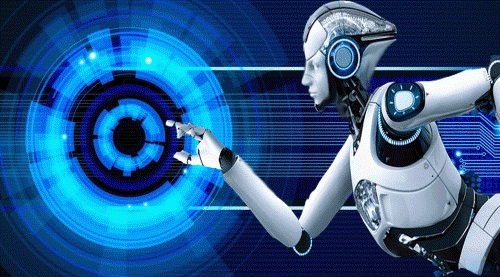
Artificial Intelligence (AI) is rapidly transforming various aspects of our lives, from self-driving cars to virtual assistants. This innovative technology is revolutionizing the way we learn as well, offering new opportunities for online education. In this article, we’ll dive into the world of Artificial Intelligence and explore how it is reshaping online learning.
The Power of Artificial Intelligence in Online Learning
Artificial Intelligence has the potential to revolutionize education by offering personalized learning experiences. Traditional online courses often follow a one-size-fits-all approach, but AI-powered platforms have the ability to adapt to each individual’s unique learning needs and preferences.
Through machine learning algorithms, AI platforms analyze vast amounts of data collected from learners, such as their performance, engagement, and feedback. These insights enable the system to make data-driven decisions, tailor curriculum delivery, and recommend personalized study plans.
Enhancing Student Engagement and Motivation
One common challenge in online learning is the lack of engagement and motivation compared to traditional classroom settings. However, AI can provide innovative solutions to address these issues. By utilizing natural language processing and sentiment analysis, AI systems can understand and respond to students’ emotions in real-time.
For example, chatbots powered by AI can engage in intelligent conversations with students, provide guidance, and offer instant feedback, simulating a personalized tutor. This interactive and dynamic learning experience keeps students engaged and motivated throughout their online courses.
Intelligent Content Creation and Curation
Another significant advantage of AI in online learning is its ability to create and curate content. AI algorithms can analyze vast amounts of information, filter out irrelevant or outdated material, and recommend the most relevant resources to learners.
Furthermore, AI-powered content creation tools can automate the generation of educational materials, such as quizzes, interactive exercises, and even entire lessons. This not only saves educators time but also ensures consistent quality and relevancy of the content delivered to students.
Accurate Assessment and Personalized Feedback
AI systems can also assist in the assessment process, providing accurate evaluations and personalized feedback to students. By analyzing learners’ performance data, AI algorithms can identify patterns, strengths, and areas of improvement.
With this information, AI platforms can generate personalized feedback tailored to each individual’s specific needs. This helps students better understand their progress, identify areas where they need to focus more, and receive customized recommendations for improvement.
Overcoming Language and Accessibility Barriers
Language and accessibility barriers often hinder the reach of education. However, AI technology can help overcome these challenges. Through natural language processing and machine translation, AI platforms can provide real-time translation services, breaking down language barriers and enabling students from diverse backgrounds to learn comfortably.
Additionally, AI-powered accessibility features, such as text-to-speech conversion and image recognition, make online learning more inclusive for individuals with disabilities. These features ensure that no one is left behind and that everyone can benefit from the opportunities offered by online education.
The Future of Online Learning with Artificial Intelligence
As AI continues to advance, the future of online learning looks promising. The integration of AI technology enables the creation of intelligent learning platforms that can fully adapt to individual learners, providing personalized, engaging, and inclusive educational experiences.
By leveraging AI in online learning, educators can optimize their teaching methodologies, students can achieve better learning outcomes, and society as a whole can benefit from a more accessible and efficient education system.
In conclusion, Artificial Intelligence is revolutionizing online learning by personalizing the learning experience, enhancing engagement and motivation, automating content creation, providing accurate assessment and feedback, and overcoming language and accessibility barriers. As this exciting technology continues to evolve, the future of online education looks brighter than ever before.

